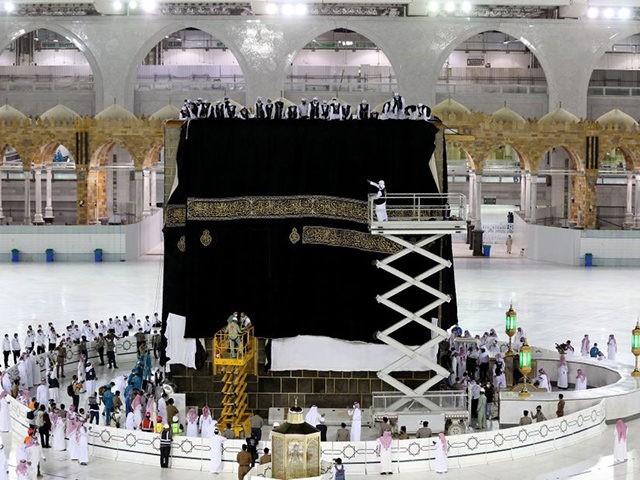Saudi authorities arrested 936 people Thursday for allegedly trying to enter Islamic holy sites during the hajj pilgrimage “without prior authorization,” Saudi news outlet al-Arabiya reported.
Saudi Arabia’s General Directorate of Public Security confirmed the arrests on Thursday. The Hajj Security Forces Command’s spokesman said the authorities “took the necessary actions against them [the perpetrators], including imposing … previously announced fines.”
The Saudi government announced this month “several penalties for violating the restrictions on this year’s limited Hajj, including a 10,000 Saudi riyal fine ($2,666) for people who enter the Holy sites in Mecca without a permit during Hajj,” al-Arabiya reported. “Repeat offenders [will] be fined twice the amount.”
On Wednesday, the five-day hajj pilgrimage event began with just 1,000 participants allowed, a small fraction of the 2.5 million in attendance last year. Saudi government officials severely restricted the number of pilgrims permitted to visit the holy city of Mecca this year as part of the annual ritual due to the coronavirus pandemic. The pilgrimage to visit the kaaba in Mecca, Islam’s holiest shrine, is required of all able-bodied Muslims once in their lifetime and is one of the five pillars of Islam.
Participants of the pared-down event face heightened security and must comply with strict virus prevention protocols, such as being chaperoned during trips from their government-approved hotel to holy sites. Authorities say they deployed monitors to observe groups of pilgrims and ensure they follow health protocols, such as physical distancing and the wearing of sanitary masks, during worship.
People’s movement is tightly restricted during the event to help prevent virus transmission, the government asserted. Pilgrims are transported from their specially designated hotel to holy sites on government buses, where they have assigned seats for the duration of the five-day affair. Yesterday, several news outlets reported that the government assigned pilgrims movement-tracking bracelets so that Saudi authorities may monitor their whereabouts during the event.

COMMENTS
Please let us know if you're having issues with commenting.